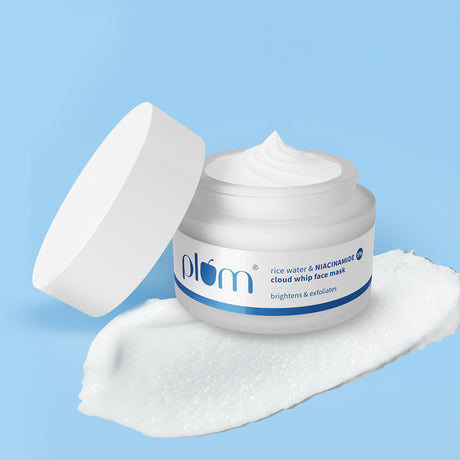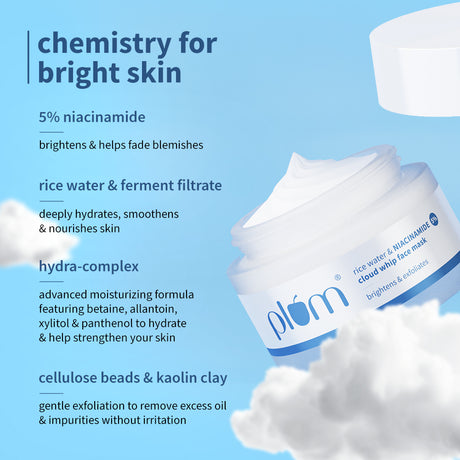-
Green Tea Clear Face Mask
Detoxifies skin | Rejuvenates & clarifies
oily acne-prone skin13% off₹426.00₹490.00(13% off)Unit price /Unavailable -
Rice Water & 5% Niacinamide Cloud Whip Face Mask
Brightens | Gently Exfoliates | Hydrates & Nourishes
13% off₹434.00₹499.00(13% off)Unit price /Unavailable -
Bulgarian Rose & Hyaluronic Acid Frosted Sleeping Mask
Overnight hydration | Mattifying sorbet texture
13% off₹564.00₹649.00(13% off)Unit price /Unavailable




















